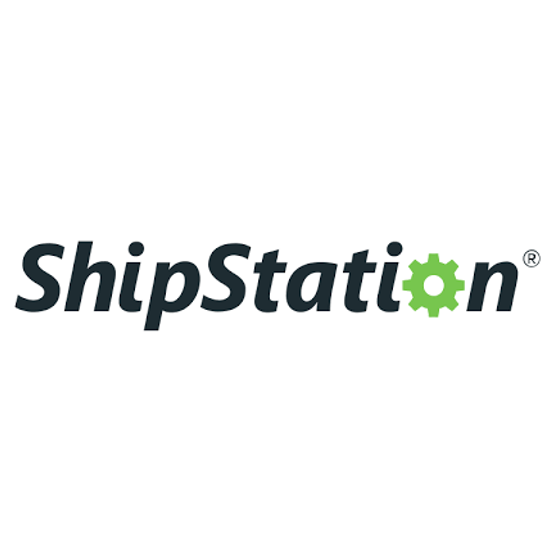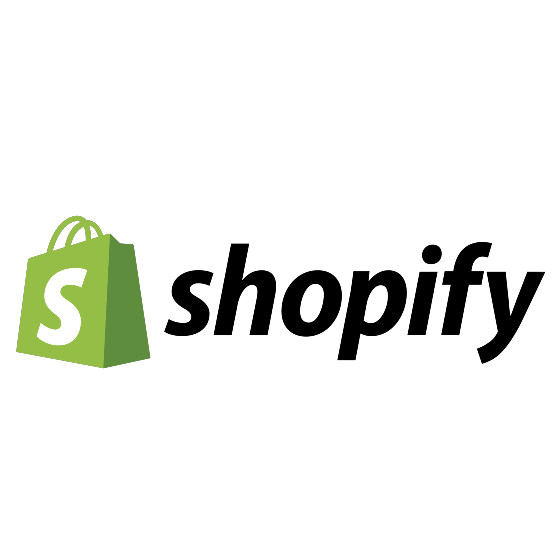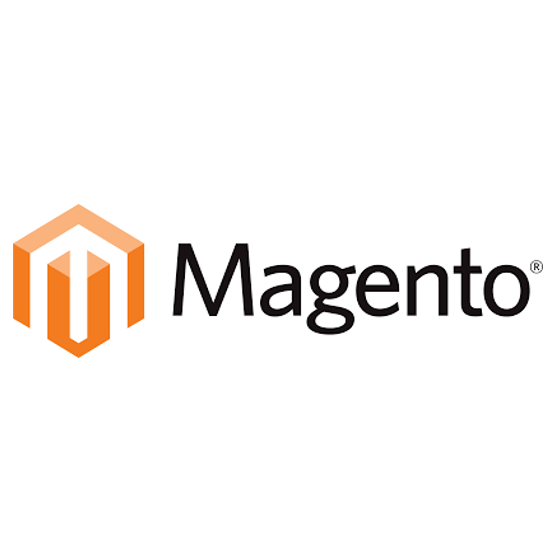10 Best Cheap Ecommerce Platforms Shortlist
Here's my pick of the 10 best software from the 20 tools reviewed.
There are so many different cheap ecommerce platforms that making a shortlist of the best can be tricky. You want to design, build, launch and manage a store but don't have a ton of money to spend on it—and now need the right tool for your business and team. I've got you covered! In this post, I share from my personal experience managing online commerce businesses, using many different ecommerce platforms with SMBs and startups, and share my picks of the best cheap ecommerce platforms overall.
What Is an Ecommerce Platform?
An ecommerce platform is a digital framework enabling businesses to sell products or services online. It acts as a virtual storefront where merchants can showcase their offerings, manage inventory, process transactions, and handle various aspects of online business operations. By providing tools for product listing, secure payment processing, order management, and customer communication, ecommerce platforms simplify the entire online selling process.
Overviews Of The 10 Best Cheap Ecommerce Platforms
I compared the following cheap ecommerce platforms to help you find one that fits your specific requirements. To make this list as robust as possible, I compared each software’s features, performance, and user reviews to find the pros and cons of each option.
ShipStation is a web-based shipping solution that helps online retailers quickly and efficiently import, organize, process, package, and ship their orders.
Why I picked ShipStation: I picked ShipStation because I was looking for a solution that was affordable, easy to use, and could handle multiple shipping needs in one place. Plus, their pricing is very competitive, which is a big plus for a small business.
There are several standout features that make ShipStation a great choice for cheap ecommerce platforms. First off, it's user-friendly. The interface is clean and intuitive, and it's easy to navigate even if you're not particularly tech-savvy. Secondly, it offers plenty of flexibility. You can customize your shipping labels, packing slips, and emails to match your brand, and you can set up automation rules to speed up your workflow. Lastly, it offers real-time shipping rates, which means you can always find the best deal for your shipments.
ShipStation Standout Features and Integrations
Standout features include the inventory management capabilities that come with this software. You can track your stock levels in real-time and forecast your inventory needs in the same place you manage your orders. I found this to be a convenient time-saver to keep your ecommerce operations in the same place.
Integrations include WooCommerce, BigCommerce, BigCartel, Shopify, Squarespace, Etsy, Wix, Magento, NetSuite, SAP, DHL, USPS, Canada Post, Purolator, Lumis, and dozens more.
Pros and cons
Pros:
- Available to use in several countries
- Inventory management included
- Flexible to various user needs
Cons:
- Somewhat complex, has a learning curve
- Rate calculator isn’t always accurate
Shopify is a famous ecommerce website builder with a drag-and-drop interface that allows users to create great-looking online stores. It offers an onboarding wizard that helps users add products, customize their store’s look, connect a domain, and set up payment gateways.
Why I picked Shopify: I wanted to add Shopify to this article for those who need an extensive ecommerce store builder for a new startup or need to switch to a more capable solution for their current operation. Shopify is a cheap ecommerce platform that allows you to create high-quality web designs that can perform to win more customers. The platform also offers many store templates that put your business in the spotlight and enable you to present essential information about your store to customers and highlight your products.
Shopify Standout Features and Integrations
Features include tools that help you effectively scale your business, such as multiple staff accounts, inventory locations, bulk editing, and multiple currencies. Shopify offers online resources to help you with questions, such as a deep knowledge base and 24/7 support.
Integrations include connections with apps that help you grow your brand, business, and sales, such as AdRoll, GetResponse, Gorgias, Growave, Klaviyo, Loox, Omnisend, PushOwl, Retention Rocket, VideoWise, and other software options. You can also use Shopify’s API and a paid Zapier account to create custom integrations.
Pros and cons
Pros:
- Simple store activity management tools
- Contains many ready-to-use features
- Easily creates new ecommerce sites
Cons:
- Reaching customer support can be difficult
- Not many customization options
Squarespace is a powerful ecommerce platform that offers a solution for growing ecommerce sites.
Why I picked Squarespace: Growth is a significant goal for any business, so I wanted to include Squarespace for ecommerce stores that are experiencing this stage of their business. When going through the growth stage of your business, Squarespace offers you solutions to build an online presence with more style and substance than other cheap ecommerce platforms. You can create an online store that’s as simple or complex as you want and add specific functionality as you grow.
Squarespace Standout Features and Integrations
Features include customization options that allow you to change site templates without starting your store from scratch. Squarespace also has no storage database limits, relieving worries about how many product assets you can upload.
Integrations include connections and extensions with tools to help enhance your online store’s power across the internet, such as Avalara, Disqus, Dropbox, FreshBooks, Google Workspace, PayPal, QuickBooks Online, ShipBob, ShipStation, Stripe, and other software options. You can also use a paid Zapier account to connect Squarespace to over 1,000 third-party applications.
Pros and cons
Pros:
- Intuitive functionality
- Easy to understand and use
- Allows users to create custom websites
Cons:
- Inputting custom design coding can be difficult
- Undoing significant changes is complex
PrestaShop offers merchants a cloud-based, open-source ecommerce platform allowing users to choose their desired features.
Why I picked PrestaShop: I wanted to add PrestaShop because it’s a cloud-based option, meaning you and your team can access your store’s backend from anywhere in the world. PrestaShop is a simple ecommerce platform that doesn’t require expertise in web design. It works for selling digital products or operating a marketplace along with regular selling of physical products online.
PrestaShop Standout Features and Integrations
Features include customization tools that allow you to tailor your online store to align with your type of business and meet customers’ expectations. PrestaShop’s catalog and product management tools enable you to create and manage thousands of product listings in hundreds of categories.
Integrations include PrestaShop’s partnerships with applications to offer native connections with tools to give you everything you need to create a successful store. These integrations include systems such as Amazon Pay, Klarna, Klaviyo, Mailchimp, PayPal, Sendinblue, ShipStation, Skrill, Stripe, Zendesk, and other software options.
Pros and cons
Pros:
- Good for small businesses
- Allows customization via modules
- Very user-friendly
Cons:
- Many extensions require payment
- Less community support compared to other options
OpenCart is an open-source ecommerce platform that allows users to create a free online store. The software offers extensive customization capabilities, allowing businesses to create a store that completely fits their brand.
Why I picked OpenCart: I couldn’t create a cheap ecommerce platforms list without adding an option that allows you to create an online store for free, so I added OpenCart for your consideration. OpenCart is an open-source online store management tool that uses programming languages like MySQL and HTML to create a free website. With OpenCart, you can use standard ecommerce store creation and management tools, such as secure payment providers, inventory management, and professional web store templates.
OpenCart Standout Features and Integrations
Features include user management tools that enable you to efficiently work with other team members, allowing them to perform various responsibilities, thanks to advanced user privileges to help you separate access for individual users and groups. You can also use OpenCart to implement recurring payments for customers if you plan to sell products with a subscription, promote a discount or member’s club, or break up costs into smaller segments.
Integrations include connections with over 1,300 tools and systems, such as Google Analytics, LiveAgent, LiveChat, Mailchimp, Omnisend, QuickBooks, ShipMonk, WordPress, Xero, Zendesk, and other software options. You can also use the platform’s API or a paid Zapier account to create custom integrations with your toolset.
Pros and cons
Pros:
- Extensive add-on list
- Simple configuration
- Easy to install
Cons:
- Navigation has a learning curve
- Interface needs work
BigCommerce is a robust ecommerce platform option for online stores with more extensive inventories. It offers a comprehensive suite of tools from marketing to analytics to help manage significant sales volumes.
Why I picked BigCommerce: For those with significant sales volumes, I wanted to add BigCommerce to this list because it’s a simple tool that can quickly create an ecommerce store for your product line. BigCommerce can simplify inventory management regardless of how many SKUs, warehouses, variants, and sales channels you’re using. On the front end of your store, your customers won’t experience any difficulties finding what they need, thanks to BigCommerce’s strong product search engine.
BigCommerce Standout Features and Integrations
Features include complex inventory management capabilities that empower your teams to manage up to 600 variants tied to a single SKU. BigCommerce also enables teams to quickly track customers and revenue across multiple sales channels, such as Instagram, Facebook Marketplace, and Amazon, and make adjustments to the channels you’re using.
Integrations include connections with over 1,300 powerful ecommerce tools and applications to enhance processes and increase productivity, such as ActiveCampaign, Google Analytics, Gorgias, HubSpot, Keap, LeadDyno, Lucky Orange, Mailchimp, QuickBooks Online, Zendesk, and other software options. You can also use BigCommerce’s API to make custom integrations with your current systems.
Pros and cons
Pros:
- Simple multichannel integration
- Extensive list of user-friendly features
- No platform or commission fees
Cons:
- Limited checkout customization
- Steep learning curve
Weebly is a robust ecommerce platform that provides many website templates that offer a simple and affordable way of building an online store.
Why I picked Weebly: I added Weebly to this article because it provides over 100 different website templates to choose from, empowering you to find something just right for your brand. Using one of the templates is quick, choose a design, add products, set up shipping and taxes, then select your preferred payment method. Afterward, Weebly automatically creates your storefront, allowing you to customize it as you see fit.
Weebly Standout Features and Integrations
Features include inventory tracking capabilities that allow you to manage anywhere from a handful of products to a product line with hundreds of choices. Weebly also provides a completely integrated shopping cart with secure checkout to help you provide your customers with peace of mind when shopping in your store.
Integrations include over 370 native connections with popular business management tools. These connections include systems such as AWeber, G Suite, Jotform, LiveChat, PayPal Marketing, Printful, Privy, RabbitSEO, ShipRobot, Tidio Chat, and other software options.
Pros and cons
Pros:
- Competitive pricing
- Robust features
- User-friendly interface
Cons:
- Sometimes site load slowly
- Customer service needs work
Volusion offers a visual builder tool that empowers online merchants to create ecommerce websites without any coding expertise.
Why I picked Volusion: I decided to add Volusion to this list because of its visual builder that will help you fully customize your ecommerce store without having coding knowledge. For those with some coding knowledge or who are working with a developer, Volusion provides CSS and HTML customization areas. For everyone else, there’s a Style Editor feature that enables you to adjust colors, fonts, and styles to fit your brand.
Volusion Standout Features and Integrations
Features include marketing tools that offer everything you need in one area, such as deals of the day promotions, reward customizations, and newsletter functions. The platform also provides a visual analytics dashboard that helps you see data for orders, categories, and top products.
Integrations include 80 native connections with tools such as Authorize.net, Avalara, Cartmojo, Constant Contact, Fomo, GeoTrust, LiveChat, PayPal Checkout, ShipStation, Shipwire, and other software options. If you have a paid Zapier account, you can create custom integrations if you can’t find any native connections with Volusion and your tech stack.
Pros and cons
Pros:
- Easy to use
- Quick setup
- Offers various powerful ecommerce features
Cons:
- Customer support needs work
- Not many integrations
Big Cartel is an ecommerce platform specially designed for independent artists and creatives. It’s an excellent option for creatives to sell their merchandise.
Why I picked Big Cartel: If you’re an independent artist, you can use Big Cartel to manage your digital storefront. I added Big Cartel because it’s built to provide a straightforward experience by providing essential ecommerce features without overstretching functionality. The platform offers standard ecommerce features, such as real-time statistics, inventory tracking, and custom domains.
Big Cartel Standout Features and Integrations
Features include customization options that enable you to customize your store with free themes to develop the look and feel of your business. You also get a suite of essential ecommerce tools to help you manage your store, fulfill orders, and run promotions from any device.
Integrations include connections between Big Cartel and standard business applications to help you get the most out of your online store, such as Elfsight, Google Analytics, LiveChat, Lucky Orange, Mailchimp, PayPal, Powr.io, Printful, ShipStation, Stripe, and other software options.
Pros and cons
Pros:
- Simple setup process
- Allows quick edits
- Very easy to use
Cons:
- Five product limitation on free plan
- Lacks some standard features
Magento Open Source is a robust ecommerce platform meant for developers with significant programming experience.
Why I picked Magento Open Source: You might have extensive programming experience or currently working with a top web developer, which is why I added Magento Open Source for consideration. There’s a significant learning curve when using Magento Open Source, so it’s best if you have a large amount of experience or can pay someone to join your team. However, after implementing the platform in your business, you’ll receive a tool that can handle an intensive feature set.
Magento Open Source Standout Features and Integrations
Features include scalability capabilities that can grow with your business and handle up to 100,000 products. Magento Open Source also provides many themes and extensions that will help you power your online store.
Integrations include connections with over 1,100 systems to help enhance efficiency and improve productivity. These include connecting with applications such as Cin7, Easyship, eDesk, Gorgias, HubSpot, LiveChat, QuickBooks Online, Xero, Zendesk, Zoho CRM, and other software options.
Pros and cons
Pros:
- Easy to use
- Allows for extensions to add features
- Many customization possibilities
Cons:
- Can be slow sometimes
- Support needs work
The Best Cheap Ecommerce Platforms
| Tools | Price | |
|---|---|---|
| ShipStation | From $9.99/month | Website |
| Shopify | From $29/month (billed annually) | Website |
| Squarespace | From $16/month (billed annually) | Website |
| PrestaShop | No price details | Website |
| OpenCart | Pricing upon request | Website |
| BigCommerce | From $29/month (billed annually) | Website |
| Weebly | From $10/month (billed annually) | Website |
| Volusion | From $31.50/month. | Website |
| Big Cartel | From $9.99/month | Website |
| Magento Open Source | Pricing upon request | Website |

Compare Software Specs Side by Side
Use our comparison chart to review and evaluate software specs side-by-side.
Compare SoftwareOther Options
The list above offers some of the top ecommerce platforms available for your business because they meet the requirement of being the cheapest available in such a competitive space to win you over. But, of course, there are a plethora of other options out there that are more suitable for your needs, including:
- WooCommerce
Best for WordPress users
- Drupal Commerce
Best for customization
- Wix
Best for small businesses
- SITE123
Best for ready-made styles and layouts.
- nopCommerce
Best for any sized ecommerce business.
- Swell
Best API-first ecommerce platform.
- Shippo
Best for shipping rates.
- Cube Cart
Best feature-rich ecommerce platform.
- Smartstore Community Edition
Best online community.
- IM Creator
Best for starting small ecommerce stores.
Selection Criteria For Cheap Ecommerce Platforms
Here’s a short summary of the main selection and evaluation criteria I used to develop my list of the best cheap ecommerce platforms for this article:
Core Functionality
The core functionality of an ecommerce platform will be the same, no matter which vendor is providing the solution. To make it on this list of cheap ecommerce tools, the system should offer the following functionality at a minimum.
- Ability to create a website or online store, or act as an add-on to a website you already own
- Ability to upload a product catalog, including images, descriptions, and pricing information
- Lower priced plans or free options for those just starting out
Key Features
Every online store has unique needs, and choosing the best cheap ecommerce tool for this list depends on its ability to solve the most common daily challenges inherent within ecommerce stores. However, there are some basic features to consider when looking for cheap ecommerce platforms.
- Payment Processing: Although the type of payment processing accepted might vary between platforms, they each accept online payments when customers are ready to buy your products.
- Inventory Management: Tracking inventory is essential to ensure you’re not overselling or running out of stock; many solutions offer some form of inventory management, but the extent of this feature depends on the vendor.
- Customer Management: Good ecommerce platforms provide some form of customer management, including capabilities such as customer accounts, order history, loyalty, and wishlists, allowing you to provide excellent customer experiences and monitor customers’ orders.
- Analytics: This is crucial to understanding your organization and seeing what needs improvement; many ecommerce platforms offer detailed analytics, helping you track metrics such as average order value, conversion rate, customer lifetime value, and other essential KPIs.
- Product Management: Managing products is vital to ensure accuracy and organization; cheap ecommerce platforms should allow you to manage aspects such as product variants, product reviews, and more.
- Security: This is critical to protect your customers’ payment data and personal contact information and ensure your online store is free from fraud; this consists of capabilities such as SSL certificates, PCI compliance, and password protection.
Usability
Cheap ecommerce platforms simplify the process of creating a website and selling online without having programming expertise. The tools I added to this article have a reputation for allowing merchants to easily create professional-looking ecommerce sites. Some also offer built-in tools to help you manage and edit your store.
Software Integrations
A crucial factor I considered when evaluating the cheap ecommerce platforms in this article is the ability to integrate them with external services or plugins. Many of the choices in this article come with beneficial tools that allow you to efficiently run your business. However, they can also connect with the tools and plugins you already use to run your online stores, such as accounting, marketing, shipping, and customer reward systems.
Customizability
Customization is a significant criterion I considered when creating this article. With some of the options I evaluated, you’ll have full control of your store’s source code, meaning you can tailor every aspect of your site. Other choices have more limited customizability because the vendor controls the source code, meaning you don’t have as much freedom to customize your site without any programming knowledge. Lastly, other options combine flexibility and function with the capability of customizing your store’s source code without needing coding skills.
People Also Ask
As more and more online merchants look for budget-friendly ecommerce platform solutions, some common questions can arise during their search. Here, I’ll answer some of the most pressing questions people ask about cheap ecommerce platforms to help you narrow down your options.
What is the easiest ecommerce platform to use?
During my evaluation, I found that platforms such as Shopify and BigCommerce are quick and easy to set up. This makes them some of the best ecommerce platforms for many businesses. Both platforms offer extensive features, and Shopify provides an onboarding wizard to guide you through adding new products, customizing your store, connecting a domain, and setting up payment processing.
Are there any free ecommerce platforms?
A free ecommerce platform can offer reasonable functionality at zero or minimal cost, making it significantly appealing to many businesses. You can start an ecommerce store for free, either through a free trial or a free plan. However, after your trial, you must pay for a plan or transaction fees when using a free plan.
How much do ecommerce platforms cost?
When writing this article, I focused on evaluating ecommerce platforms for those looking for more affordable solutions. However, discussing the price range from startups and small businesses to enterprise-level merchants is beneficial to make this article more robust. The final cost of an ecommerce platform can vary depending on the functions you need to operate your organization, but you can expect to pay between $9/month to $31.50 on the lower end and much more for enterprise-level ecommerce operations.
Other Ecommerce Platforms Reviews
Researching the best cheap ecommerce platforms is an excellent place to start when dipping your toe into the online retail space. But, if you need more specialized options for your business, you should consider the following platform reviews to find something that best fits your company. You can start with the overall best Best Ecommerce Platforms, which contain a little bit of everything ranked in an ultimate list.
Ecommerce Platforms by Business Type
- Subscription Ecommerce Platforms
- Ecommerce Platforms For Small Businesses
- SaaS Ecommerce Platforms
- B2B Ecommerce Platforms
- International Ecommerce Platforms
Ecommerce Platforms by Need
- Open Source Ecommerce Platforms
- Headless Ecommerce Platforms
- Easiest Ecommerce Platforms
- Omnichannel Commerce Platforms
- Enterprise Ecommerce Platforms
- Ecommerce Marketplace Platforms
- Social Commerce Platforms
- Hosted Ecommerce Platforms
- Ecommerce Platforms In Canada
The Takeaway
After seeing all the features and prices I explored in this article, you can see that you don’t need a significant budget to launch an online store. A strong web development budget might simplify the process; startups or small businesses can get everything running with a few dollars. While many platforms I discussed in this article offer similar features, digging deeper into the ones that pique your interest the most is beneficial to see if they provide everything you need.
If you need help with other aspects of your ecommerce business or you’re looking for some advice, sign up for The Ecomm Manager newsletter to receive the latest tips, software reviews, and tricks of the trade right in your inbox.
Related Read: Ecommerce Platform Guide: 3 Key Factors to Consider for Your Online Business




















